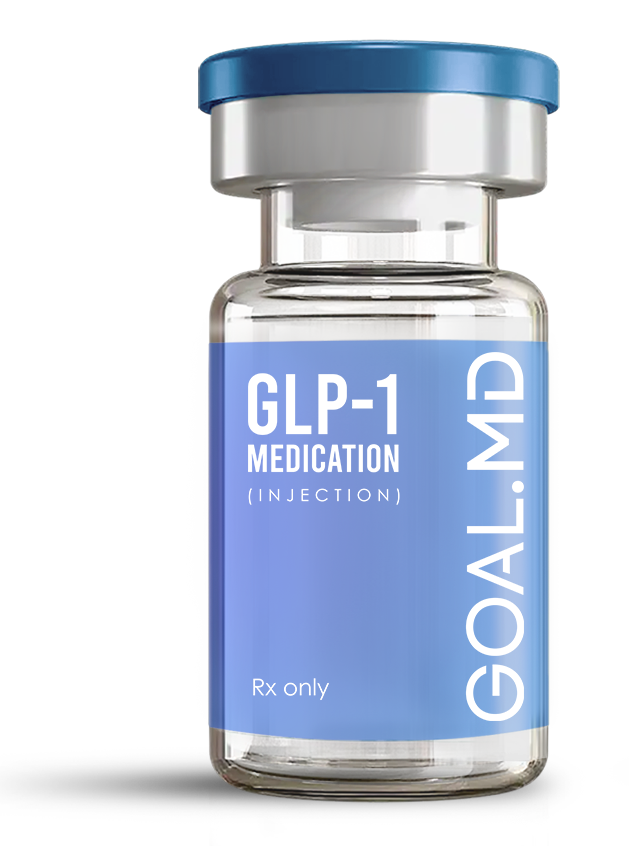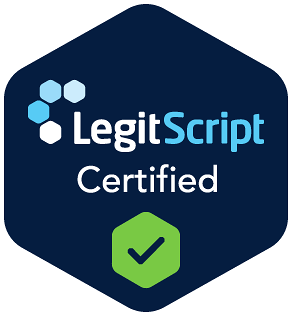
GOAL.MD Health & Wellness Blog
Evidence-based insights, medical weight loss information, and practical tips from our physicians and healthcare experts.

How GLP-1s Help You Break Up with Emotional Eating (for Good)
Emotional eating can feel like an unbreakable cycle—stress, eat, guilt, repeat. But with the rise of GLP-1 medications like Semaglutide (Wegovy® and Ozempic®) and Tirzepatide (Mounjaro® and Zepbound®), something remarkable is happening:
For the first time, people are experiencing freedom from food obsession.
GLP-1s don’t just reduce hunger—they help you untangle emotion from appetite. Here’s how.
What Is Emotional Eating?
Emotional eating is when food becomes a coping mechanism, not a nutritional need. It's reaching for snacks when:
You're anxious
You’re lonely
You feel bored
You're rewarding yourself
You're numbing out
Over time, this behavior forms deep-rooted brain loops reinforced by dopamine—your brain’s feel-good chemical.
How GLP-1s Work on Your Brain and Gut
GLP-1 (glucagon-like peptide-1) is a naturally occurring hormone released in your gut after meals. Medications like Semaglutide and Tirzepatide amplify this signal and have effects in the:
Brain: Reduces food noise and cravings
Stomach: Slows gastric emptying, promoting fullness
Pancreas: Improves insulin response
The most profound benefit for emotional eaters? Appetite and emotion become disconnected.
The “Food Noise” You Don’t Notice Until It’s Gone
One of the most common things GLP-1 users report is:
“For the first time, I’m not thinking about food 24/7.”
This isn’t willpower—it’s neurochemical silence.
GLP-1s calm the reward circuits in your brain that trigger:
Late-night snacking
Impulse eating during stress
Constant grazing to soothe boredom
Breaking the Emotional Eating Loop
Here’s what makes GLP-1s unique for healing your relationship with food:
1. You Pause Instead of React
Without intense cravings clouding your judgment, you can stop and ask:
“Am I hungry—or just anxious?”
This pause gives you space to build awareness, the first step toward change.
2. You Rewire Old Patterns
Every time you feel sadness or stress and don’t reach for chips, you’re building a new neural pathway.
GLP-1s make it easier to:
Sit with discomfort
Reach for non-food coping tools
Reinforce positive routines
3. You Learn What Fullness Feels Like
Many emotional eaters don’t know when they’re full because they’ve overridden those signals for years. GLP-1s slow digestion and amplify satiety, allowing you to recognize:
Real fullness
When to stop eating
What “enough” actually means
4. You Detach Identity from Food
GLP-1s give you distance from food as an emotional crutch. Over time, you stop identifying as:
“The one who always stress-eats”
“Someone who needs dessert to feel better”
“Out of control around food”
You reclaim your autonomy.
What to Do During This Window of Clarity
GLP-1s are a tool, not a cure. Emotional healing requires action. Here’s how to solidify the transformation:
Start Therapy or Journaling
Address the root causes of emotional eating. Are you avoiding grief, loneliness, pressure, or past trauma?
Develop Non-Food Coping Habits
Create a list of go-to activities:
Walks
Breathwork
Art
Talking to a friend
Listening to music
Track Wins, Not Just Weight
Celebrate moments like:
Saying “no” to comfort food
Leaving food on your plate
Choosing to sit with an emotion
These are victories.
Will Emotional Eating Come Back After Stopping GLP-1s?
It can—but it doesn't have to.
If you’ve used the time on GLP-1s to build skills, you’re far more likely to:
Maintain healthy habits
Identify emotional triggers early
Use intentional coping tools instead of food
You’re not going back—you’re leveling up.
Final Thought: You’re Not “Weak”—You Were Overwhelmed
If you’ve struggled with emotional eating for years, it wasn’t because you lacked discipline. It’s because:
Your hormones were out of sync
Your brain was trained to seek food for comfort
You never had a pause button
GLP-1s offer that pause. What you do with it is where the true healing begins.
Take the Next Step Toward Food Freedom
At GOAL.MD, we support patients on GLP-1 therapy not just with prescriptions—but with:
Emotional eating coaching
Mindful eating tools
Post-GLP-1 success planning
Peer support and accountability
🎯 Start your journey now—because real change happens when food becomes fuel, not a fix.
Why GOAL.MD?
✅ Sourced from audited 503a US compounding pharmacies.
✅ Custom dosages adjusted to your needs.
✅ Free consultation + 24/7 support.

How It Works
1. Quiz
90 seconds. No commitment.
2. Consult
Video chat with your GOAL.MD doctor.
3. Deliver
Meds at your door tomorrow.
Transform Your Life with Physician-Directed Care
Join thousands who've found success with physician-directed care. Take our 3-minute quiz to see if medical weight loss is right for you.








